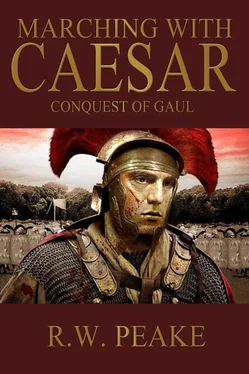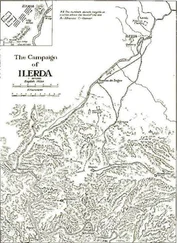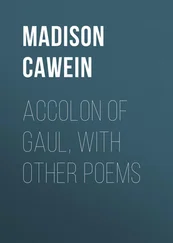R. Peake - Marching With Caesar - Conquest of Gaul
Здесь есть возможность читать онлайн «R. Peake - Marching With Caesar - Conquest of Gaul» весь текст электронной книги совершенно бесплатно (целиком полную версию без сокращений). В некоторых случаях можно слушать аудио, скачать через торрент в формате fb2 и присутствует краткое содержание. Жанр: Исторические приключения, на английском языке. Описание произведения, (предисловие) а так же отзывы посетителей доступны на портале библиотеки ЛибКат.
- Название:Marching With Caesar: Conquest of Gaul
- Автор:
- Жанр:
- Год:неизвестен
- ISBN:нет данных
- Рейтинг книги:3 / 5. Голосов: 1
-
Избранное:Добавить в избранное
- Отзывы:
-
Ваша оценка:
- 60
- 1
- 2
- 3
- 4
- 5
Marching With Caesar: Conquest of Gaul: краткое содержание, описание и аннотация
Предлагаем к чтению аннотацию, описание, краткое содержание или предисловие (зависит от того, что написал сам автор книги «Marching With Caesar: Conquest of Gaul»). Если вы не нашли необходимую информацию о книге — напишите в комментариях, мы постараемся отыскать её.
Marching With Caesar: Conquest of Gaul — читать онлайн бесплатно полную книгу (весь текст) целиком
Ниже представлен текст книги, разбитый по страницам. Система сохранения места последней прочитанной страницы, позволяет с удобством читать онлайн бесплатно книгу «Marching With Caesar: Conquest of Gaul», без необходимости каждый раз заново искать на чём Вы остановились. Поставьте закладку, и сможете в любой момент перейти на страницу, на которой закончили чтение.
Интервал:
Закладка:
The Treveri first showed up outside our camp the day after we learned of the massacre of the 13th and 14th. Although they did not formally lay siege, they arrayed themselves on the northern side of the river, interposing their army between us and Cicero, in sufficiently large numbers that cutting our way through them was no sure thing. There were perhaps 12,000 or more men that we could see, yet what worried Labienus, and us, was what we did not know. There was no way to tell what lay beyond the Treveri; would we fight our way through them, only to find another tribe waiting for us? Would we be fighting every inch of the 60 miles to Cicero’s camp? Subsequently, it was with a heavy heart that Labienus sent word back to Caesar that we could not take the risk of leaving our camp, a decision that Caesar later approved as prudent. Caesar would have to make do with what he could scrape together, and it was with a great deal of anxiety that we sat waiting for further developments, while keeping a close eye on the Treveri. For their part, they seemed content to wait and let whatever was taking place with the Eburones and Nervii to play out. Later we determined what the Treveri were waiting on was the destruction of the 7th, after which they planned on being joined by Ambiorix and his army. Meanwhile, Caesar was moving with his usual speed, having beefed up his Legion with the remaining five Cohorts of the 13th, and it was on his march to the east where the courier sent by Labienus found him, giving him the first word of the massacre of the 13th and 14th. His reaction was one of immense grief, making a vow then and there not to shave his beard nor cut his hair until the loss was avenged. Perhaps it was luck, although I believe it was the work of the gods to include the remaining men of the 13th in the relief column, because they were now filled with a terrible resolve to avenge the death of their friends. Caesar continued the march towards Cicero’s camp, with a very angry army at his back.
Caesar sent Vertico’s slave ahead to try getting word to Cicero, which the slave did, although in such a manner that it was not noticed for a couple of days. Tying Caesar’s dispatch around the shaft of a javelin, the slave hurled it while taking part in a Gallic attack on the walls, where it buried itself in one of the stakes of the palisade, remaining lodged there until a Centurion noticed it. That was the official story; more likely one of the rankers found it but his Centurion took the credit. Whatever the case, the men behind the walls were heartened by this news, yet were still pessimistic that Caesar would arrive in time. Nevertheless, Caesar moved with his usual speed, and in fact the signs of his approach could be marked by the columns of smoke rising in the air as he laid waste to every farm and village on the way in punishment. It was the signs of this punishment that actually raised the siege of Cicero’s camp, the Gauls seeing what was happening behind them and thereby turning to stop Caesar. Caesar’s scouts warned him of this new movement, so he gave orders to immediately stop the march and make camp. He had some 7,000 men and 300 cavalry that he had thrown together against perhaps 60,000 men, so he knew that he could not face them in pitched battle. His only hope lay in the strength of our camps and the discipline of the Legions, both of which he used to their fullest extent. Ambiorix and his allies stopped on the other side of a small river when they saw Caesar’s camp, which he sited so that from a small knoll the enemy could look down into the camp, far enough away where they could not deploy missile troops with any effect, yet close enough that what was taking place in the camp was clear to see. Caesar then instructed his men to act like they were in a state of panic as they hurried about the camp, apparently trying to improve the defenses. His cavalry screen went out and on his orders, fled when the enemy tried to engage with them, as if reluctant to do battle. The combination of these ruses served its purpose and the enemy rode across the river to surround the camp. Judging the gate too sturdy to attack, they began to fill in the ditch at a couple of points in preparation for their assault. So confident of victory were they that they did not worry about any kind of attack from within the camp, exactly what Caesar was planning on. Instantly, from both side gates our men came boiling out, led by the cavalry, immediately striking deep into the flanks of the Gauls, who were completely unprepared for an attack of any sort so it did not take long to rout the whole force, with our men inflicting heavy losses before Caesar called off the pursuit. Now with the enemy scattered to the winds, Caesar left his camp and completed the march to relieve Cicero, arriving at the gates of the 7th’s camp in the middle of the afternoon where he was understandably met with much jubilation. Caesar had broken out of his camp and inflicted heavy casualties without the loss of a single man; the same was not true for Cicero, where only ten percent of his men had no wound of any kind. Word of Caesar’s victory reached our own camp at midnight of that day as a dispatch rider used the darkness to slip past the Treveri watching our camp. Indutiomarus, at the head of the army of the Treveri, decided that the time to strike had not yet come, and ordered the army around our camp to disperse for the time being. But he was not through yet.
Because of all the turmoil in Gaul, Caesar abandoned his usual custom of leaving the area and going back to the Province or elsewhere, deciding it was best if he kept an eye on things. There was also the matter of punishing the tribes involved in the massacre of the 13th and 14th Legions, which had given the Gauls the first sign that we were not invincible. I believe it was this knowledge more than anything else that set in motion the events that were to transpire, and even we rankers knew that this winter was going to be unlike any we had ever spent since we had been in the army. Remaining at our spot, Labienus ordered us to spend more time than was usual in erecting proper fortifications to protect us, an order we cheerfully obeyed despite the extra work. Meanwhile, Caesar decided to winter at Samarobriva, summoning all of the Gallic chiefs, many of whom were involved to one degree or another in all the plotting, to come to Caesar to explain themselves. Most complied; some did not, Ambiorix being the most notable, although I cannot say that I blamed him. Neither did Indutiomarus, for the same reasons. The chiefs who did show up were thoroughly cowed, as Caesar gave them detailed accounts that showed them the extent of his knowledge of all of their intrigues with each other. They were allowed to leave, but only after renewing their oaths of loyalty and providing even more hostages as surety of their word. While Caesar was working on strengthening the bonds of the tribes of Gaul to Rome, Indutiomarus was working to solidify his own power within the Treveri. He was co-ruling at that time with his son-in-law Cingetorix, but Cingetorix was too friendly with Rome for his tastes and family or not, Indutiomarus decided that Cingetorix had to be replaced. He also was working on strengthening ties with the other tribes who had not answered Caesar’s summons, particularly the Sennones, who sentenced to death the chief that Caesar had appointed to lead them. Unfortunately for Indutiomarus, Rome had plans of her own concerning him and his future, plans that he would not like very much.
Indutiomarus was rebuffed by the Germans when he sent for aid at the beginning of the uprising, reminding him of the fate of Ariovistus, and I would like to believe that the identity of the Legion he was facing was part of that warning. However, Gauls and reason do not go in the same sentence together comfortably, if at all, and perhaps it was in fact our identity that spurred him to his next move. When Caesar relieved Cicero, at the same time he ordered the Treveri to disperse, yet now Indutiomarus summoned them again, so that late one morning the bucina sounded the alarm that an armed force was in sight of the camp. Dropping what we were doing, we rushed to our tents to gather up our gear and were in formation on the forum very quickly. Meanwhile, the sentries reported that it was Indutiomarus again, except instead of being content to watch us like the last time, he moved his army across the river to surround our camp. Before the Gauls managed to encircle us, however, Labienus sent couriers riding to the neighboring tribes who had submitted to Rome, demanding that a force of cavalry ride to our camp. Labienus also gave us strict orders not to retaliate or respond in any way to the insults that were being hurled at us by warriors who would gallop near the wall to perform their usual ritual. By this time, both sides had learned enough of the others’ language that we could at least tell when we were being insulted and what was said. As an aside, I find it amusing and somewhat interesting that whenever a soldier enters new lands, the first words of the other people’s language he picks up are invariably either curse words or words that one needs when negotiating for a whore. In our case, we simply guarded our area around the wall, watching impassively as each of the Treveri tried to outdo the man before in the inventiveness of his invective. Far from making us angry, some of their barbs brought much amusement, yet our orders had been interpreted that we were to betray no emotion, no matter what it was. The day was spent in this manner, us watching them as they gradually got bored with hurling insults at us, finally understanding that we would not be answering back.
Читать дальшеИнтервал:
Закладка:
Похожие книги на «Marching With Caesar: Conquest of Gaul»
Представляем Вашему вниманию похожие книги на «Marching With Caesar: Conquest of Gaul» списком для выбора. Мы отобрали схожую по названию и смыслу литературу в надежде предоставить читателям больше вариантов отыскать новые, интересные, ещё непрочитанные произведения.
Обсуждение, отзывы о книге «Marching With Caesar: Conquest of Gaul» и просто собственные мнения читателей. Оставьте ваши комментарии, напишите, что Вы думаете о произведении, его смысле или главных героях. Укажите что конкретно понравилось, а что нет, и почему Вы так считаете.












